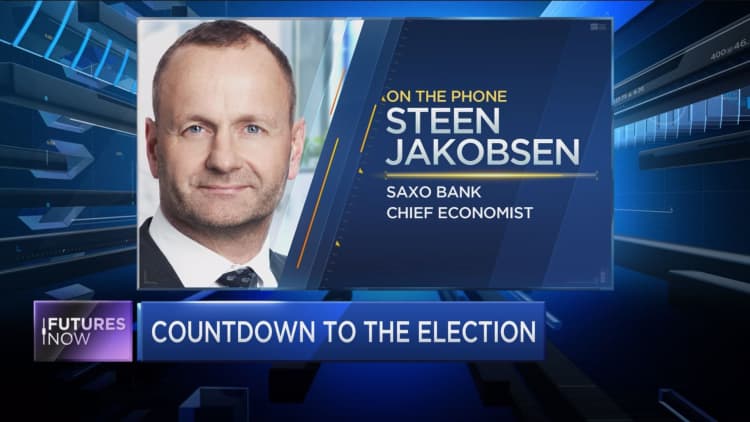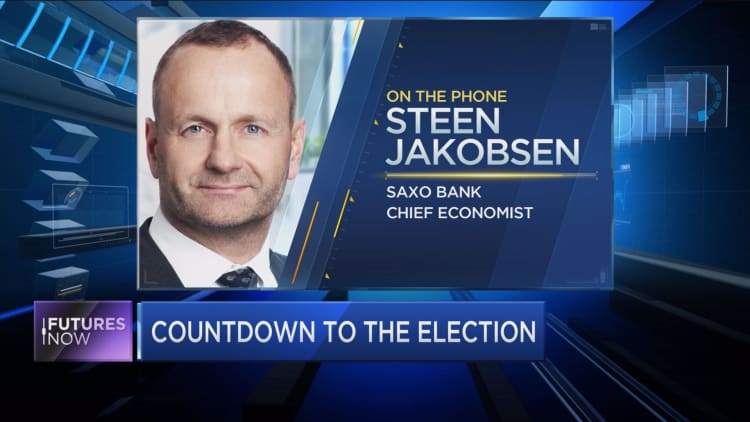


With the final countdown to the election in hand, an 'ugly period' for the market is drawing near, says one economist.
"Clearly what we have right now is a market that is finally realizing that this could be a repeat of what we saw in the U.K. in terms of Brexit — not necessarily meaning that Trump will prevail, but certainly that it will be much tighter come election day," Steen Jakobsen of Saxo Bank told CNBC's "Futures Now" on Tuesday. "That's really the theme of the week, and that of course is coming in the form of increased volatility."
The CBOE Volatility Index, or , surged above 20 for the first time since September 12 on Tuesday, while the S&P 500 fell to its lowest level in four months. The move comes as data compiled by RealClearPolitics shows that Hillary Clinton's lead over Donald Trump is narrowing.
"This is about much more than Clinton and Trump. Even if Clinton wins, I believe there will be more volatility post-election, because this is not about [the candidates], it's more about [Americans being fed up with the status quo]," he said.
For Jakobsen, the volatility will continue through December as investors weigh a potential Fed rate hike, regardless of who wins the White House next Tuesday. But the odds of a recession will increase sharply if the incumbent party prevails.
"It's almost guaranteed that a Clinton victory is 'safe' and the Fed will move in December. And, in my opinion, that will increase the probability of a recession in the U.S. to something like 60 to 70 percent," he said.
Jakobsen believes the Fed will opt to move next month in order to "regain credibility" with the market, but he does blame the U.S. central bank for manipulating equities in order to mitigate declines.
"That's what a lot of investors are missing ... since Greenspan the Fed has changed policy. Not from a dual mandate, but to actually steering the stock market in a direction that is supportive," he added.
Jakobsen advised investors to embrace the volatility and play defensively as a stronger U.S. dollar limits equity returns.
"If you come into this both as a trader and as a server of the market, I think you will do really well, because the volatility has nothing to do with Trump or Clinton, it has to do with a model that is preempted and trotted out by monetary policy that doesn't work and the lack of fiscal stimulus," he concluded.



